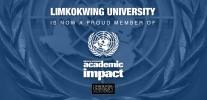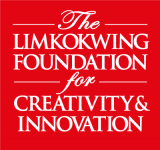FABE – Programme Educational Objectives (PEOs)

Practice civil engineering based on strong fundamental knowledge for nation building

Provide innovative and creative ideas to civil engineering solutions whenever feasible

Progress to the demand of the regional/international work environments
Vision
Creating a partnership of youths to build a better world.
Mission
Shaping human hearts and minds to power global transformation.
FABE – Programme Outcomes (POs)
Engineering Knowledge
Apply knowledge of mathematics, natural science, engineering fundamentals and an engineering specialisation as specified in WK1 to WK4 respectively to the solution of complex engineering problems.
Problem Analysis
Identify, formulate, conduct research literature and analyse complex engineering problems to reach substantiated conclusions using the principles of mathematics, natural sciences and engineering sciences (WK1 to WK4).
Design / Development of Solutions
Design solutions for complex engineering problems and design systems, components or processes that meet specified needs with appropriate consideration for public health and safety, cultural, societal and environmental considerations (WK5).
Investigation
Conduct investigation of complex engineering problems using research based knowledge (WK8) and research methods including design of experiments, analysis and interpretation of data, and synthesis of information to provide valid conclusions.
Modern Tool Usage
Create, select and apply appropriate techniques, resources and modern engineering and IT tools, including prediction and modelling, to complex engineering problems, with an understanding of the limitations (WK6).
The Engineer and Society
Apply reasoning informed by contextual knowledge to access societal, health, safety, legal and cultural issues and the consequent responsibilities relevant to professional engineering practice and solutions to complex engineering problems (WK7).
Environment and Sustainability
Understand and evaluate the sustainability and impact of professional engineering work in the solutions of complex engineering problems in societal and environmental contexts (WK7).
Ethics
Apply ethical principles and commit to professional ethics, responsibilities and norms of engineering practice (WK7).
Communication
Communicate effectively on complex engineering activities with the engineering community and with society at large, such as being able to comprehend and write effective reports and design documentation, make effective presentations, and give and receive clear instructions.
Individual and Team Work
Function effectively as an individual, and as a member or leader in diverse teams and multi-disciplinary settings.
Life Long Learning
Recognise the need for, and have the preparation and ability to engage in independent and life- long learning in the broadest context of technological change.
Project Management and Finance
Demonstrate knowledge and understanding of engineering management principles and economic decision making and apply these to one’s own work, as a member and leader in a team, to manage projects in multi-disciplinary environments.

















